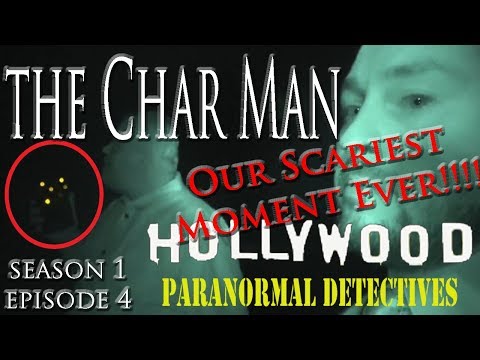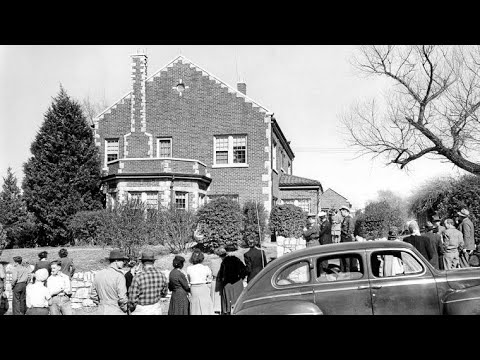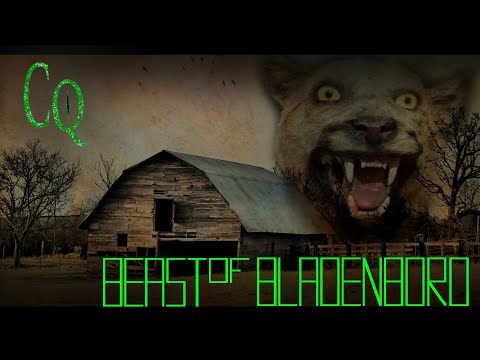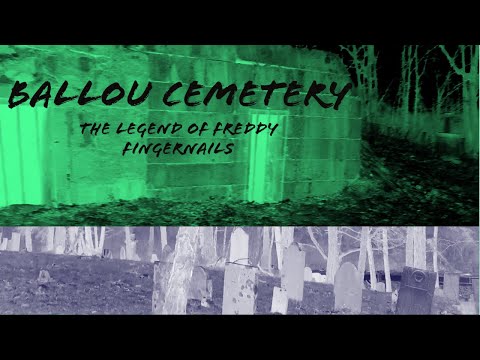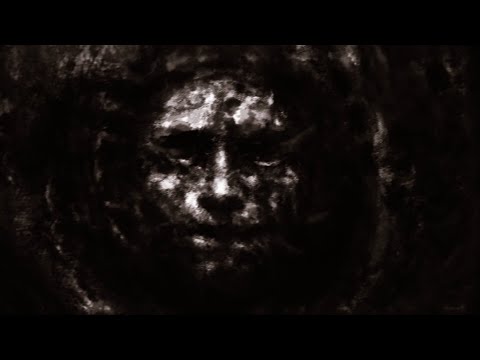10 The Char-Man of Ojai, California
The story of the Char-Man has been passed down for decades in Ojai, California. In 1948, a large brush fire swept through the Ojai Valley, destroying most of the valley, including the homes. It took several days after the flames died down for anyone to enter the valley and assess the damage. According to legend, a man and his son lived in a small house outside of town. The father was killed in the fire, and his son survived, badly burned. When someone finally reached their home in the aftermath of the fire, the son had gone insane from the ordeal. He’d hung the body of his father by his feet from the remains of a nearby tree and flayed the burned skin from the corpse. He then fled into the hills of Creek Road, where he continued to live, mad and charred. Police have allegedly been called to investigate disturbances related to the Char-Man on Creek Road. Some versions of the story say that he haunts the Creek Road Bridge (locally dubbed “Char-Man Bridge”) and occasionally attacks those who walk across it at night. A comedy-horror film was made in 2019 if you want to “experience” this urban legend.[1]
9 The Blink Man of Ellicott City, Maryland
The entity that haunts the Ilchester Tunnel in Ellicott City goes by many names, including the Blink Man, Peeping Tom, the Fickergeist, and the Tunnel Man. Though for those of you worried about catching a glimpse of the Blink Man on a casual Saturday night, you’re probably safe, as summoning him requires one to accomplish the near-impossible task of staring directly down the Ilchester Tunnel for an entire hour, from midnight to 1 am, without blinking. Should you accomplish this somehow, Peeping Tom will constantly be in your vision from that moment on, slowly growing closer to you every time you blink. The Blink Man has also inspired a fairly decent found footage horror film called Butterfly Kisses.[2]
8 The Black Angel of Iowa City, Iowa
This giant grave marker was constructed in 1913 and stands 2.7 meters (9 feet) tall, excluding the 1.2-meter (4-foot) pedestal that it sits on. It’s difficult not to be unnerved by the presence of a hulking 4-meter (13-foot) tall, jet-black hooded figure with a bowed head and one wing raised as if to beckon the viewer to shelter underneath it. There are several versions of the myth, none of which tend to end well for those involved. One says that kissing or touching the statue will bring death and misfortune upon you. Another says that kissing someone beneath the statue will cause your death. One woman stated that her husband contracted a rare disease after kissing the statue’s foot. The most interesting thing about Iowa City’s angel, however, is that we can trace its history back to a source. The statue was commissioned by a Bohemian (now the Czech Republic) immigrant named Terezie Karásek for the grave of her son, Eddie. After its completion, the statue did not at all resemble what she’d envisioned, and she fought the artist over payment but was eventually forced to settle. Less than a decade after its construction, the statue began to turn black due to the oxidization of the copper. Unfortunately, the stories of the curse began shortly after, while Terezie was still alive.[3]
7 The Hex House of Tulsa, Oklahoma
This is not to be confused with the haunted attraction of the same name. The story of the Tulsa Hex House is based on a police report from 1944. Initially investigating ration book fraud during the WWII era, officers discovered two women confined to the basement of a house belonging to a woman named Carolann Smith. The two women, Virginia Evans and Willetta Horner, were allegedly “hexed” into giving their paychecks to Carolann and forced to live in horrid conditions in the basement while Carolann lived in excess upstairs. Carolann was also known to have extorted $17,000 from Virginia Evans’ father, stating that it was going toward caring for his daughter. Carolann Smith was also shrouded by the mysterious deaths of those who were close to her and claimed life insurance policies left by her father, husband, and housemaid. For her crimes, Smith served only one year in prison (Link 7). The original Tulsa Hex House was demolished in 1975, and the site was converted into a parking lot. However, there are still stories that the basement of the Tulsa Hex House still exists underneath the pavement.[4]
6 The Beast of Bladenboro, North Carolina
The Beast of Bladenboro is one of North Carolina’s most famous urban legends. Reports of this local cryptid date back to the 1950s, when for nearly a week, the small community was held hostage by a large, cat-like, vampiric creature. This caused mass hysteria and an influx of vigilantes with guns searching for the elusive creature. The first victims of the beast were animals totaling eight dogs, a family of kittens, and one lamb. Eventually, the creature moved on to human victims, attacking a woman on a night in January, who was reported to be startled but not harmed. The hunt for the creature was a well-known affair, attracting hunters from as far as Tennessee to come to try their luck at killing the beast. At one point, the small town of 790 people had reportedly attracted anywhere from 800 to 1000 hunters at the height of the panic. By the end of the month, a hunter had produced the corpse of an 11.5-kilogram (25-pound) bobcat, which seemed to appease the people of Bladenboro, who were content to assume that this had been the source of the problem. Today, sentiments toward the Beast of Bladenboro have seemingly done an about-face, and the creature is annually celebrated at the town’s “Beast Fest.” The story was also the subject of a documentary as recently as late December of 2021.[5]
5 The Stairway to Hell in Tagus, North Dakota
Tagus (originally called Wallace), North Dakota, is a ghost town founded in 1900, reaching a peak population of only 140 in 1900 and then slowly but surely drying up into a desert of abandoned buildings and only a few lingering residents. Unfortunately, the state of the town makes it a hot spot for vandalism. The mostly abandoned locale has also made it a factory for local legends about satanic rituals and spirits. One of the main focal points of these stories is St. Olaf’s Lutheran Church. The church itself is no longer standing, as a fire consumed it in 2001, something that the remaining residents attribute to the previously mentioned instances of vandalism. A square brick memorial to the church stands in its place with the name of the church inscribed on it . According to legend, devil worshipers attended the church, and it was a place where sacrifices and rituals were carried out. The stairway to hell was said to be housed inside, a spiral staircase descending into the earth. Along with the rest of the foundation, any descending stairway has since been plowed over. Anyone interested in visiting Tagus should keep in mind to respect the town and its locals. They’re reportedly very protective of their town and wary of outsiders due to the rampant vandalism cases.[6]
4 The Haunted Kuhn Cinema in Lebanon, Oregon
The Kuhn Cinema in Lebanon is a still-operational historic theater. First opened in 1935, it was renovated and reopened in 2005. In 2013, Lebanon began the “Keep the Kuhn” project, which has provided the theater with funds to update its equipment and continue to provide Lebanon with the latest movie releases in the digital age. Despite its renovation, remnants of the cinema’s past still remain, including one allegedly very active spirit. The spirit of a young girl who fell from a balcony inside the Kuhn is alleged to haunt the theater. Staff and visitors have reportedly heard her laughing, as well as seeing doors open and close on their own. She’s been known to enter the projectionist booth, with several staff members working the booth reporting to have been hugged from behind while alone.[7]
3 Cumberland, Rhode Island’s Fingernail Freddy
As with most urban legends, there are several versions of how Fingernail Freddy came to be. In one version of the story, Freddy was a recluse who lived in the woods near Camp Ker-Anna, who grew his nails out long and sharp and would enter the campgrounds to claw at noisy campers late at night. In other versions, the story of Fingernail Freddy has merged with another local figure called “Hot-Shot Charlie.” Depending on who is telling the story, a homesteader (either Freddy or Charlie) lived in a log cabin near Camp Ker-Anna and was tormented by rowdy campers who would harass his livestock and destroy his crops. One night, at the end of his rope, Freddy fired at the kids with rock salt, chasing them away from his property. The kids returned later and set his house on fire, disfiguring him and killing his wife and children. His injuries were so extensive that he stopped going into town and became a recluse, living in the woods where his home used to be and growing his nails out long and sharp to kill those who trespass on his land. As with most urban legends, there is a small kernel of truth hidden in the heart of the story. Near the local reservoir, there are pieces of a foundation that people claim to be his home.[8]
8 The Well in Sabattus, Maine
Stairways to hell are supposedly found all over the world, but in Sabattus, getting to hell requires a much more treacherous method of descent. The story goes that a pre-teen boy was dared to explore a supposedly haunted well located in a derelict cemetery. He was lowered into the well on a rope by a group of his friends. After an uncomfortably long period of silence with no tugging on the rope, the boys decided to pull their friend up and check on him. When they hoisted him out of the darkness, his hair had gone pure white, and his eyes were wide and mad. For the rest of his life, the boy was confined to the county mental institution, never speaking another word, only screaming incomprehensibly. As with most urban legends, there are many missing details. No names associated with the boys have been released, nor can an approximate date be pinpointed. The ’90s have been proposed as the decade of origin. The location of the well is also a mystery. There are ten listed cemeteries in Sabattus, though there may be smaller family cemeteries not accounted for.[9]
1 The Curse of the Petrified Forest in Northeast Arizona
The Petrified Forest State Park is a beautiful expanse of nature, offering many activities for those looking to enjoy the great outdoors, including hiking, biking, camping, and fishing. Visitors are certain to have a lovely time and leave feeling refreshed, so long as they remember one of the cardinal rules of visiting historical sites: take nothing but pictures. It’s illegal to remove any samples of petrified wood from the park, but visitors often find themselves on the receiving end of more than a fine upon doing so. As far back as the 1930s, visitors reported steady streams of bad luck after taking pieces of the forest home with them. The park receives a steady stream of mail every year that includes fragments of petrified wood being shipped back to where it belongs, often accompanied by letters that ask park officials to put the pieces back where they came from. These rocks have been dubbed “conscience rocks” by the park staff. The park has maintained a 1,200-page archive of the letters accompanying these conscience rocks, dating back to the 1930s. The urban legend-induced penalty for stealing from the park has been cited to be anything from divorce to medical issues and the occasional death.[10]
